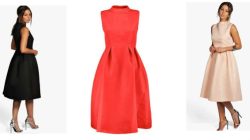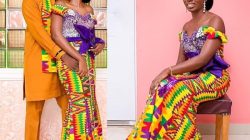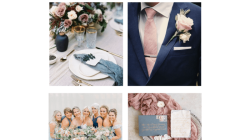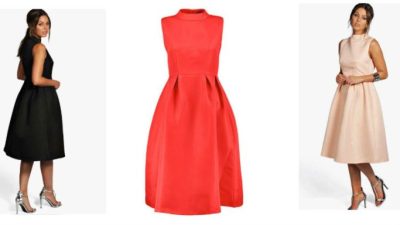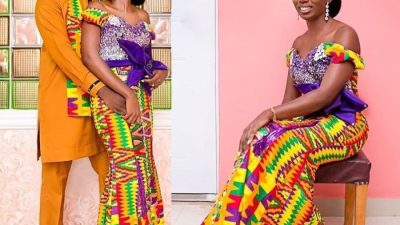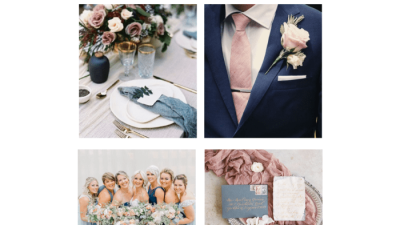Regional Variations in Ghanaian Wedding Attire: Ghana Traditional Wedding Dress
Ghana traditional wedding dress – Ghana’s diverse ethnic groups contribute to a rich tapestry of traditional wedding attire. Significant differences exist in styles, colors, and symbolic meanings across various regions. Understanding these variations offers a deeper appreciation for the cultural nuances of Ghanaian weddings.
Ashanti, Ewe, and Ga Wedding Attire
The Ashanti, Ewe, and Ga people, among others, showcase distinct styles in their wedding attire. These differences are reflected in the choice of fabrics, colors, and accessories.
| Region | Typical Fabric | Dominant Colors | Distinctive Accessories |
|---|---|---|---|
| Ashanti | Kente, silk | Gold, red, black, green | Elaborate gold jewelry, beaded headwraps |
| Ewe | Printed cotton, brocade | Bright colors, often bold patterns | Colorful beads, intricate hairstyles |
| Ga | Silk, velvet, lace | Deep blues, purples, and gold | Heavily beaded necklaces, elaborate headpieces |
The symbolic meanings behind colors and fabrics vary regionally. For example, gold often represents royalty and wealth, while red signifies passion and vitality. Specific patterns in Kente cloth also carry deep cultural significance, often related to lineage or historical events.
The Kente Cloth and its Role in Ghanaian Weddings
Kente cloth holds immense cultural significance in Ghana, representing royalty, wealth, and prestige. Its intricate weaving techniques and vibrant colors are deeply interwoven with Ghanaian history and traditions. The use of Kente cloth in weddings underscores the importance of heritage and cultural identity.
Incorporation of Kente Cloth in Wedding Attire
Kente cloth is frequently incorporated into the bride and groom’s attire. The bride might wear a Kente-inspired dress or have Kente incorporated into her headwrap or accessories. The groom may wear a Kente stole or have Kente details woven into his clothing. The specific patterns and colors chosen often reflect the couple’s family lineage or personal preferences.
Weaving Techniques and Symbolic Meanings
Kente cloth is created using a variety of weaving techniques, resulting in unique patterns and textures. Each pattern has its own symbolic meaning, often conveying messages of wisdom, strength, or prosperity. These symbolic meanings are carefully considered when selecting Kente cloth for wedding attire.
Visual Representation of a Kente-Clad Couple
Imagine a bride in a flowing gown, the bodice adorned with a vibrant Kente panel showcasing the “Adinkra” symbol representing unity. Her headwrap is a rich, deep red Kente, complementing her gold jewelry. The groom wears a matching Kente stole draped over a tailored suit, the same “Adinkra” symbol subtly incorporated into the design. The overall effect is one of regal elegance and cultural pride, the colors radiating joy and celebration.
Modern Interpretations of Traditional Ghanaian Wedding Dresses
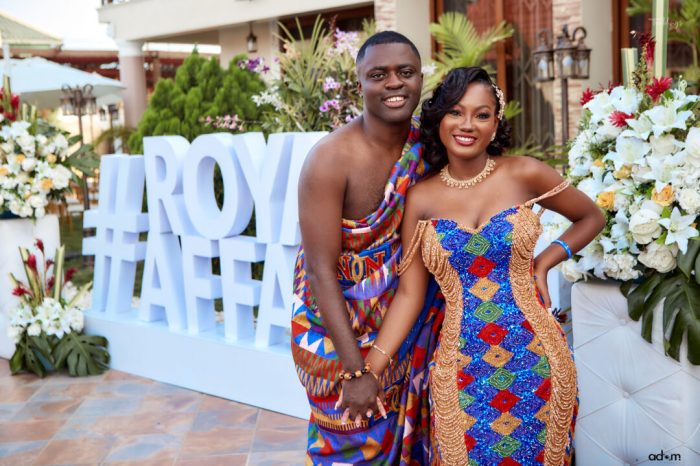
Source: bellanaijaweddings.com
Modern Ghanaian designers are creatively reinterpreting traditional wedding attire, blending traditional elements with contemporary aesthetics. This fusion results in stunning designs that honor heritage while appealing to modern sensibilities.
Contemporary Designs Incorporating Traditional Elements
- A-line gowns with Kente accents on the bodice or sleeves.
- Modern silhouettes paired with traditional Kente headwraps.
- Classic white gowns with intricate Kente embroidery details.
- Tailored suits for grooms incorporating Kente fabric into the lining or lapels.
The contrast between traditional and modern designs lies primarily in the silhouette and fabric manipulation. While traditional attire often features more flowing fabrics and less structured shapes, modern interpretations may incorporate contemporary cuts and tailoring techniques while retaining the essence of traditional patterns and colors.
Accessories and Adornments in Ghanaian Traditional Weddings
Jewelry, headwraps, and other accessories play a significant role in Ghanaian traditional weddings, adding layers of meaning and visual richness to the attire. These adornments are not merely decorative; they carry deep cultural significance, reflecting the bride’s status, family heritage, and the occasion’s importance.
Cultural Meanings of Jewelry and Adornments, Ghana traditional wedding dress
Gold jewelry, often featuring intricate designs, symbolizes wealth and status. Beaded necklaces and bracelets represent community and connection. Headwraps, meticulously crafted and adorned, signify respect and elegance. The specific type and arrangement of jewelry and accessories can convey messages about family history and personal identity.
Common Accessories and Their Craftsmanship
- Gold necklaces and earrings: Often handcrafted, showcasing intricate designs and traditional motifs.
- Beaded necklaces and bracelets: Made from colorful glass beads, sometimes incorporating shells or other natural materials.
- Headwraps: Elaborately styled and adorned with beads, sequins, or other embellishments.
- Anklets and bracelets: Often made from gold, silver, or beads, reflecting regional variations in style and materials.
Visual Impact of a Fully Adorned Bride
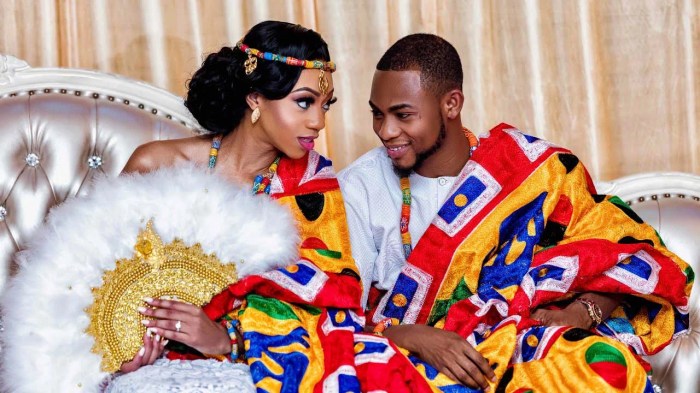
Source: weddors.com
Ghanaian traditional wedding dresses are vibrant and often feature intricate kente cloth. Choosing an appropriate outfit for a June wedding requires careful consideration of the weather, and for ideas you might find inspiration by checking out this helpful guide on dresses to wear to a wedding in june. Ultimately, whether attending a Ghanaian wedding or another celebration, selecting attire that is both stylish and respectful is key.
Imagine a bride, radiant in her Kente-inspired gown, her head crowned with a magnificent headwrap shimmering with gold beads. Layered necklaces cascade down her chest, reflecting the light. Delicate gold bracelets adorn her wrists, and anklets chime gently with each step. The overall effect is breathtaking, a testament to the beauty and artistry of Ghanaian traditional wedding attire.
The vibrant colors, intricate details, and carefully chosen accessories create a powerful visual statement, celebrating the union and the rich cultural heritage of Ghana.
The Role of Family and Community in the Selection of Wedding Attire
The selection of wedding attire in Ghana is a collaborative process, deeply involving family and community members. This shared responsibility reflects the importance of family and community in Ghanaian culture and emphasizes the communal nature of the wedding celebration.
Process of Selecting Fabrics, Designs, and Accessories
The process often begins with consultations with family elders and experienced craftspeople. Fabrics are chosen based on tradition, personal preference, and the couple’s family history. Designs and patterns are selected with careful consideration of their symbolic meanings. Accessories are chosen to complement the attire and enhance the overall aesthetic.
Significance of Collaborative Attire Selection
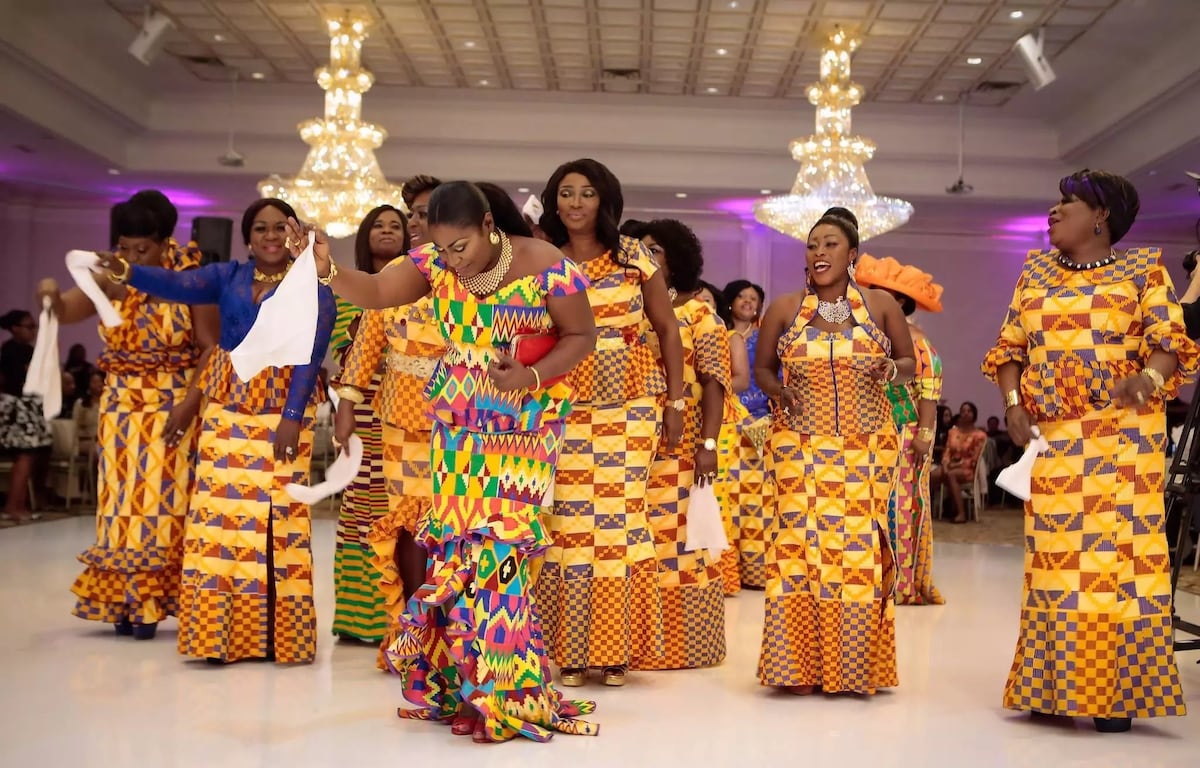
Source: com.gh
The collaborative aspect ensures that the attire reflects the couple’s identity and their place within their family and community. It fosters a sense of shared responsibility and reinforces the importance of collective decision-making in Ghanaian culture. The process itself becomes a meaningful part of the wedding preparation, strengthening family bonds and creating lasting memories.
Influence of Family Traditions
Family traditions play a crucial role in shaping the choice of wedding attire. Specific patterns, colors, or accessories may be passed down through generations, reflecting family history and cultural heritage. The choice of attire becomes a way to honor ancestors and connect with the past, while also celebrating the present and looking towards the future.
Key Questions Answered
What is the typical cost of a traditional Ghanaian wedding dress?
The cost varies greatly depending on the fabric (e.g., Kente cloth can be expensive), the intricacy of the design, and the tailor’s expertise. Expect a range from moderately priced to quite high.
Where can I find a tailor who specializes in Ghanaian wedding attire?
You can find tailors specializing in Ghanaian wedding attire through online searches, recommendations from Ghanaian communities, or by visiting local markets in Ghana or areas with significant Ghanaian populations.
How long does it typically take to create a traditional Ghanaian wedding dress?
The creation time depends on the complexity of the design and the tailor’s workload, but it can range from several weeks to several months.
Can I wear a traditional Ghanaian wedding dress if I’m not Ghanaian?
Absolutely! Appreciating and celebrating other cultures is encouraged. However, it’s respectful to learn about the cultural significance of the attire before wearing it.

